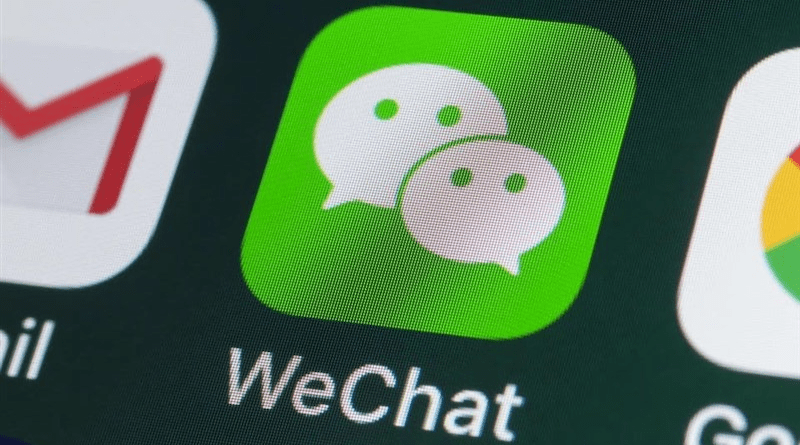Is WeChat’s Threat To Australian Elections Overstated? – Analysis
By Fan Yang
The 2019 Australian federal election was the first time that Australian politicians interacted with Mandarin speakers on the Chinese social media platform WeChat. The two major party leaders at the time — Scott Morrison of the Liberal-National Party (LNP) and Bill Shorten of the Australian Labor Party (ALP) — joined WeChat Official Accounts (WOAs) to give public announcements and conduct online video meetings as part of their election campaigns.
Concerns were raised about the possibility of Beijing’s influence in swinging the opinion of Chinese-speaking voters towards the party that maintained more moderate policies toward China. These fears came as no surprise — from 2020 onwards, Chinese-owned apps like WeChat and TikTok have faced public disputes, boycotts and parliamentary inquiries into issues of foreign interference, censorship and cybersecurity.
After Morrison’s WOA ‘went missing’ in 2022, Liberal members of parliament, including James Paterson and Gladys Liu, pledged to boycott WeChat. The 2022 elections saw the LNP increasingly politicising WeChat in the name of countering foreign interference, inflaming anti-China sentiments for political gain.
The incorporation of WeChat into politicians’ 2022 federal election campaigns became not only instrumental, but also divisive. In 2022, more LNP, ALP and independent politicians joined WeChat to promote their policies. But engagement with Chinese migrants on WeChat mostly remained one-way, with political communication largely terminated after the election.
While certain groups of LNP politicians shunned WeChat, others such as Josh Frydenberg and Paul Fletcher invested significantly in political advertising across several influential WOAs. Prime Minister Anthony Albanese and ALP member Clare O’Neil used WeChat to update Chinese voters on political announcements and ALP policies. Teal candidates Kylea Tink and Fuxin Li also participated on WeChat.
The significance of WeChat in political communications has also been highlighted in Australia’s state elections. In 2022, the then Victorian Liberal leader Matthew Guy initiated a series of political advertisements on WeChat ahead of the state election. In the leadup to the NSW state election in 2023, NSW Labor leader Chris Minns embarked on political campaigns using influential Sydney-based WOAs.
Political campaigns on WeChat are under-supervised by the platform and the Australian Electoral Commission. Although WeChat has clarified that the platform prohibits political campaigns, business-oriented and self-sponsored WOAs continue to publish political advertisements on behalf of Australian politicians, bypassing the platform’s regulations. In 2022, the Australian Electoral Commission groundbreakingly commissioned influential WOAs to publish educational materials about identifying disinformation.
Though politicians’ engagement on WeChat is vital in filling the gap between Mandarin-speaking migrants and the Australian political sphere, consistent engagement from politicians is lacking and the risks of using Chinese technologies remain. Resources invested in monitoring disinformation on WeChat are deficient, especially ahead of national or state elections. As Chinese language political commentaries by commercial WOAs are one of the major sources for Mandarin speakers to understand Australian politics, there is the possibility of misinformation or disinformation driven by commercial imperatives and non-professional translations.
Since 2023, scrutiny over Chinese-made technologies — from social media, digital devices and smart home appliances to commercial drones and urban infrastructure — is being further escalated by Labor government national initiatives to counter foreign interference. Concerns about WeChat are realistic and the app could bring various risks to Australia in the future. With Beijing having assumed more restrictive controls over the country’s tech industry since 2021, political interests are on par with commercial imperatives for Chinese tech companies.
Despite fears of foreign interference, our study — which monitored multiple rounds of Australian federal and state elections — has not yet identified alleged ‘Chinese influence’ across WOAs. Our assessment of Beijing’s influence is based on the number of China-sponsored articles that show a strong preference towards a particular candidate, which was apparent in the 2022 Hong Kong Chief Executive election.
During the 2019 and 2022 Australian elections, WOAs run by Chinese state media provided little coverage about Australia’s elections or politicians. The shift in Mandarin-speaking voters’ preferences from the Liberal Party to the Labor Party was mainly due to their hopes for an improvement in Australia–China relations, which would benefit their lives, businesses and careers.
The low citizenship conferral rate of Chinese migrants means that a majority will not obtain voting rights. But for migrants who are less familiar with Australia’s parliamentary democracy, WeChat is essential in painting a comprehensive picture of Australian politics, which will enable better engagement within society.
About the author: Fan Yang is a Postdoctoral Research Associate at Deakin University and RMIT.
Source: This article was published by East Asia Forum

